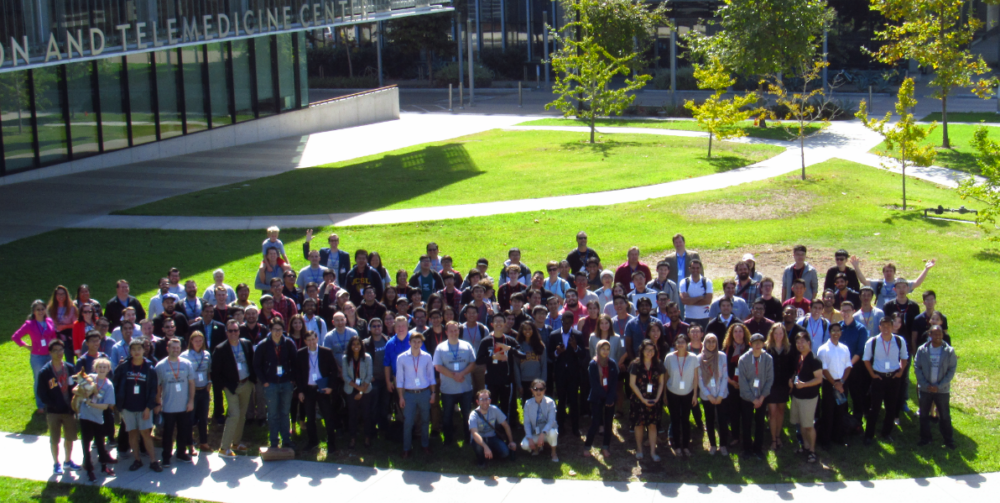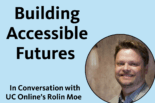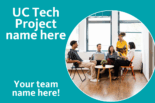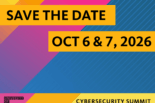By Marissa Ventura. They came from across the country to dream up ideas, using technology, to improve patient engagement and their experience in today’s health-care system. Whether it involved crowd-sourcing, blockchain technology, or Alexa skills, more than 200 undergraduate and graduate students gathered at UC Health Hack 2018 and stepped up to the challenge of creating the next best thing in health care technology.
“Providing the best experience for our patients is a key, untapped resource in health care today,” said Christopher Longhurst, MD, chief information officer and associate chief medical officer at UC San Diego Health. “Our annual UC Health Hack gives us the opportunity to bring fresh minds together, coupled with mentors from a number of fields, to develop breakthrough solutions benefiting our patients.”
UC Health Hack participants were challenged to change the patient experience and engage patients in their own health care. They used prototyping software, hardware, supplies and application programming interfaces. They also had access to mentors and experts in medicine, research, academia, and technology to help them bring their ideas to life.
“An interdisciplinary group of volunteer judges listened to about 50 proposals. Six finalists were chosen to present their proposals to a panel of judges in a ‘Shark Tank’-like format,” said Josh Glandorf, senior director of Analytics & Affiliations, Information Services, referring to the way participants pitched their ideas to panelists. “Our finalists’ proposals were thoughtful, impressive and innovative, making the judging very difficult.”
And the winner is – TimER chatbot
At the end of the fast-paced, two-day event, a winner emerged: TimER is a data-driven chatbot that provides users with emergency room and urgent care wait times based on the user’s location. The idea was developed by the two-member team of Luyanda Mdanda and Hannah Peterson, who are third-year students at UC San Diego.
“During our preliminary research, we saw that two of the greatest barriers to an optimal patient experience were high health care costs and wait times. We wanted to make a tool to mitigate this that would be accessible to as wide a range of people as possible – including my grandpa,” said Peterson, who is studying data science. “This led us to our simple, text-based interface, which we’re calling TimER.”
The team believes this platform could be scalable, with maximum impact not only for users but also for health care providers. “This project could also provide a data dashboard that would allow health care providers and the state where they practice to better allocate medical resources by identifying trends in procedures and their locations,” said Mdanda, who is studying cognitive science.
Second place: It’s a tie
Second place resulted in a tie: A team from Florida envisioned a hospital way-finding app using augmented reality navigation to help patients or visitors locate the fastest path to their destination inside a hospital setting. A team from UCI School of Medicine imagined a virtual assistant based on the Amazon Echo platform to improve patient compliance in clinical trials.
Participants also competed in timed challenges, as they worked on their final proposals. The challenge winners included the creation of Alexa skills aimed at supporting home health patients, the integration of machine learning to help recognize the faces of patients and staff, and the development of a platform for clinical trial participants to get appointment reminders and trial information.
“Our Health Hack participants brought us one step closer to helping patients in need,” said Christian Dameff, MD, a Health Hack technical mentor and clinical informatics fellow at UC San Diego Health. “We are hopeful and confident that their code will save lives.”
An annual tradition
UC Health Hack 2018, the second annual health-focused hackathon held at the UC San Diego campus, was a collaboration among UC Health sites, including UC San Diego Health, UCI Health, UCR Health, and UCSF Health, plus Rady Children’s Hospital San Diego. The event received sponsorship from Amazon Web Services, Optimum Healthcare IT, Jamf, Clearsense, Epic, Interopion, Lifelink, Slalom, Tableau and West Health Institute. The competition featured about 50 proposals, and winners were awarded nearly $10,000 in prize money plus bragging rights.
Kudos to the core Health Hack team from UC San Diego Health and UCI Health, who helped put the event together: Tracy Magee, Andrew Greaves, Arden Tran, Marc Sylwestrzak, Marissa Ventura, Mike Glover, Chad Elias, Josh Glandorf, Dr. Brian Clay, Dr. Jim Killeen, Dr. Christian Dameff, Dr. Jeremy Bass, Dr. Mike Hogarth, and Dr. Lina Lander.
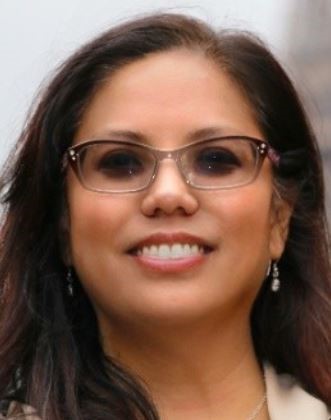 Marissa J. Ventura is communications lead, Information Services, UC San Diego Health
Marissa J. Ventura is communications lead, Information Services, UC San Diego Health

